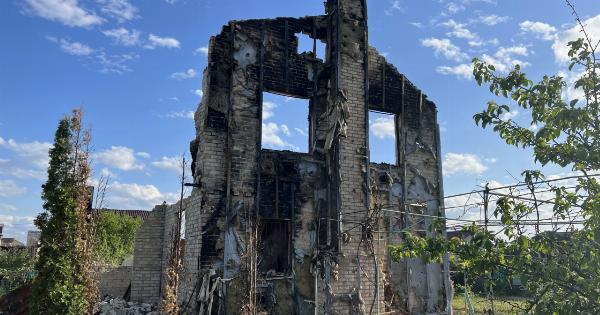Insurance is a vital tool that provides financial protection and peace of mind to individuals and businesses in the face of unexpected events.
Whether it’s health insurance, car insurance, or any other type of coverage, policyholders rely on the insurance company to fulfill its contractual obligations in case of a claim. But what happens if the insurance company closes its doors? Will your insurance still be valid? In this article, we will explore this question and shed light on the potential scenarios that could arise if your insurance company goes out of business.
Understanding the Basics of Insurance Companies
Before diving into the implications of an insurance company closing, it’s essential to understand how insurance works. An insurance company operates by pooling premiums from its policyholders and using those funds to pay out claims when necessary.
The company invests the accumulated premiums to generate profits, which help cover operational costs, pay out claims, and maintain financial stability.
Insurance companies are subject to strict regulations and oversight by government agencies to ensure solvency and protect policyholders.
However, even with these regulations in place, unforeseen circumstances or financial mismanagement can lead to the closure of an insurance company.
Consequences of an Insurance Company Closing
When an insurance company ceases operations, it has a severe impact on policyholders and their coverage. The consequences can vary depending on the type of insurance and the regulatory framework in the jurisdiction where the company is operating.
1. Regulatory Safety Nets
In many jurisdictions, there are safety nets in place to protect policyholders in the event of an insurance company closure.
These safety nets are typically established by regulatory bodies and can take various forms, such as guaranty associations or state-run insurance guarantee funds.
Guaranty associations are designed to provide coverage for policyholders in the event that their insurance company becomes insolvent or is unable to fulfill its obligations.
These associations are funded by assessments on other insurance companies and have specific coverage limits. They aim to ensure that policyholders receive at least a minimum level of coverage, even if their insurer fails.
2. Transfer of Policies to Another Company
In some cases, when an insurance company is on the brink of closure, it may enter into an agreement with another insurer to transfer its policies and liabilities.
This arrangement, known as novation, ensures that policyholders continue to have coverage without interruption.
Novation requires the approval of regulatory authorities and must meet specific criteria to safeguard policyholders’ interests.
The receiving insurer assumes the responsibilities and claims obligations of the closed company, ensuring uninterrupted coverage for the policyholders.
3. Run-Off Operations
In situations where an insurance company is unable to find a willing insurer to take on its policies, it may be placed into “run-off.” Run-off refers to the process of managing the existing policies until they expire or reach their termination date.
During the run-off period, the insurance company continues to handle claims and provide coverage under the existing policies. However, it does not underwrite any new policies, and the business is gradually wound down.
Policyholders can generally expect their existing claims to be honored during the run-off period, but it’s crucial to monitor the situation and consider seeking alternative coverage.
4. Transferring Policies to Policyholders
In rare cases, when an insurance company is unable to transfer its policies to another insurer and is forced into liquidation, policyholders may have the option to assume control of their policies.
This option is known as the “assumption of risk” or “assumption reinsurance.” Policyholders can choose to become self-insured or seek alternative coverage.
Assuming control of a policy carries risks and responsibilities. Policyholders would need to fulfill all regulatory requirements and adhere to the terms and conditions of the policy.
This option is typically offered as a last resort when no viable alternatives are available.
Protecting Yourself as a Policyholder
While the potential closure of an insurance company can be concerning, there are steps you can take as a policyholder to protect yourself and mitigate any potential risks:.
1. Research and Choose a Reliable Insurer
Prioritize researching and selecting an insurance company with a solid reputation, financial stability, and a history of excellent customer service.
Look for companies with high ratings from reputable rating agencies that evaluate insurers’ financial strength.
2. Diversify Insurance Coverage
Instead of relying solely on one insurance company for all your coverage needs, consider diversifying your insurance policies among multiple providers.
This approach helps mitigate the risk of all your policies being affected if one insurer encounters financial difficulties.
3. Review Regulatory Safety Nets
Understand the regulatory safety nets available in your jurisdiction and the coverage limits they offer.
Familiarize yourself with the guaranty associations or insurance guarantee funds that exist to protect policyholders in case of an insurance company’s insolvency.
4. Stay Informed
Keep a close eye on the financial health of your insurance company by monitoring its ratings and any news or reports that may indicate potential financial troubles.
Engage with the company’s customer service representatives or independent insurance agents to stay informed about any changes that may affect your coverage.
The Bottom Line
In the unfortunate event that your insurance company closes, there are mechanisms in place to protect policyholders and ensure coverage continuity.
Regulatory safety nets, policy transfers, run-off operations, or assumption reinsurance provide potential solutions when an insurance company goes out of business. However, it’s crucial to stay informed, choose reliable insurers, and diversify your insurance coverage to minimize the risks associated with an insurer’s closure.
By taking these precautions, you can have peace of mind knowing that your insurance remains valid even if the company behind it shuts down.




















